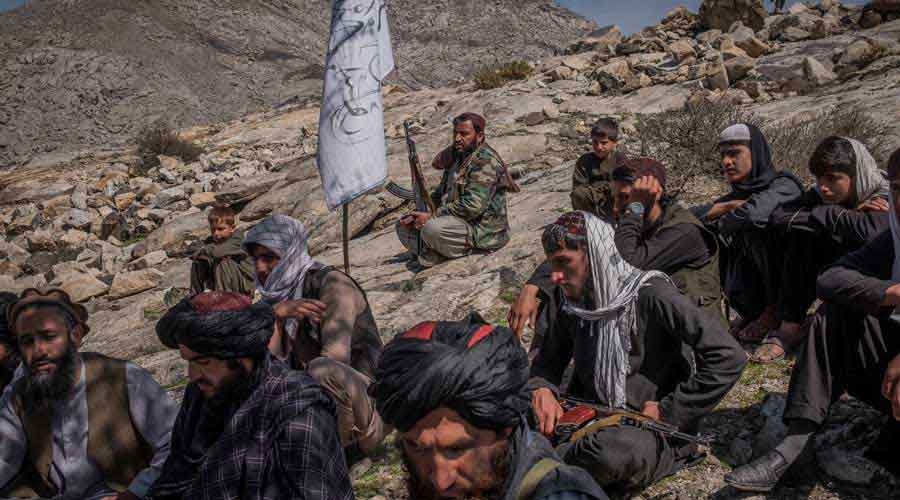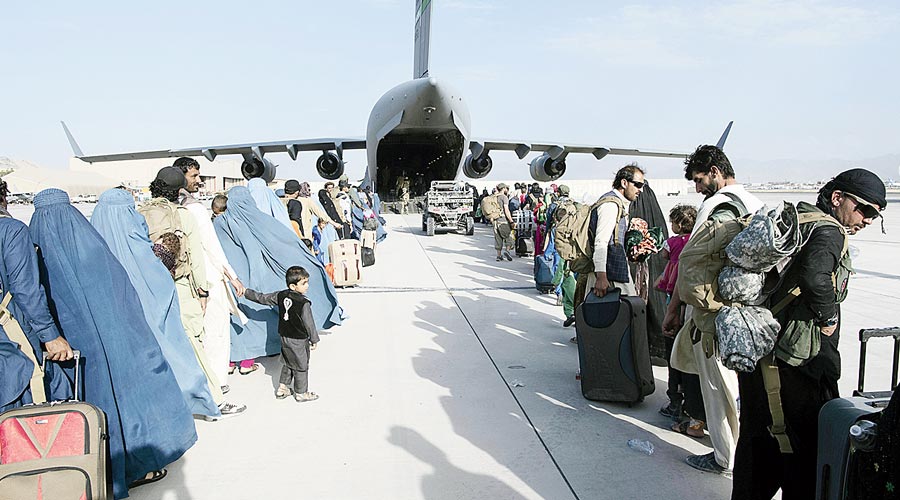The external affairs ministry on Friday said it was premature to expect a policy on whether or not to recognise the Taliban at this moment, pointing out that the situation on the ground was too fluid with no government in place in Kabul.
Asked if India has made up its mind on recognising the Taliban, external affairs ministry spokesperson Arindam Bagchi said: “The situation on the ground is uncertain.... Currently there is no clarity about any entity forming a government in Kabul. I think we are jumping the gun here regarding recognition. We continue to monitor the situation.”
Asked why there is no clarity when the Taliban have control over much of Afghanistan, Bagchi said there had been a lot of reports on who would be represented in the government, if it would be inclusive and whether other elements of Afghan polity would find representation.
Bagchi said: “That’s why I don’t want to speculate. There was a peace process and there are discussions going on right now. Let’s wait and see how it develops. That’s why we said this.”
The spokesperson did not respond to a question on whether India has any caveats for recognising the Taliban as has been spelt out by some other countries. Soon after the fall of Kabul on August 15, India had said at a meeting of the UN Security Council on the situation in Afghanistan that an inclusive government would help the arrangement gain legitimacy.
“We also hope that there is an inclusive dispensation which represents all sections of Afghan society. Voices of Afghan women, aspirations of Afghan children and the rights of minorities must be respected. A broader representation would help the arrangement gain more acceptability and legitimacy,” India’s permanent representative to the UN, T.S. Tirumurti, had said.
India is not alone in taking such a stance. Several other leading democracies with stakes in Afghanistan have articulated similar positions. Bagchi pointed out that most other countries are also in the frame of “wait and watch”, adding that India is monitoring the situation closely and talking to friendly nations.
As for the evacuation process, the spokesperson said the vast majority of Indians who wished to return had been evacuated but was quick to add that some more were likely to be in Afghanistan.
On the status of the Afghans who have been evacuated, he said they were coming in on an e-visa that is valid for six months. What their status will be, he added, will be decided in due course, pointing out that this is essentially the domain of the home ministry.
Likewise, to a question on the fate of the Afghan nationals who were already in India on medical/student visas that were nearing expiry, Bagchi said the home ministry would be looking into it.
Deportation
Bagchi described as unfortunate the case of an Afghan woman MP being deported from India last week. Responding to questions on the MP, Rangina Kargar, being deported, he attributed it to the state of high alert that had been sounded after the government had learnt about the loss of Afghan passports with Indian visas.
“There were reports right in the beginning, around the 15th, of groups of people who raided one of our outsourcing agencies which had Afghan passports with Indian visas. In light of the loss of Afghan passports containing Indian visas, our authorities were in a state of high alert. We were also moving the e-visa system. It appears all this could have led to some confusion, which in turn led to the unfortunate incident of denial of entry to the particular Afghan national.”











